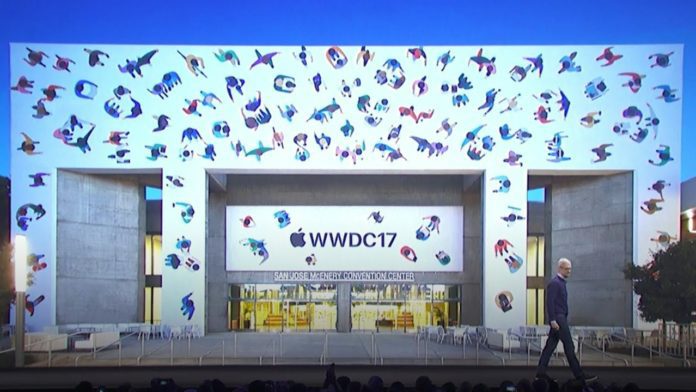While Apple remains a consumer-focused brand, it’s clear that the company is excited to be empowering digital transformation for today’s enterprises by providing leading-edge technology and developer tools. This was evident in the announcements made at the company’s recent Worldwide Developers’ Conference.
iPad Pro
The WWDC 2017 announcement most relevant to today’s enterprise was the iPad Pro. Although it’s the same size as the previous generation, the new iPad Pro will boast 20% more screen real estate, 30% faster CPU performance, and 40% faster graphics performance than previous models. That makes this iPad’s graphics performance 500x faster than the original 2010 version.
The iPad Pro provides just the right combination of workstation capabilities and portability to make it a viable laptop replacement for employees.
MacBook Pro
The new MacBook and MacBook Pro laptops will feature seventh-generation Intel Core processors,
increasing performance and improving high-quality video playback. Additionally, they’ll feature higher memory capacity, super-fast storage, two Thunderbolt 3/USB-C ports, and next-generation graphics.
These powerful machines, along with updates in macOS High Sierra (available in fall 2017) and new
features such as message synchronization and a new file system, will make it easier for a mobile
workforce to be more organized and efficient.
HomePod
Apple’s newest product is the HomePod, a Siri-powered smart assistant. What separates HomePod
from the well-established competition? One word—privacy. Unlike its competitors, the HomePod shares its learned and personalized data across devices with end-to- end encryption. So, you never have to worry about Apple sharing your data with advertisers or the government, no matter where—or how—you search.
The HomePod, with its end-to- end encryption feature, is a great product for enterprises governed by industry regulations around data security such as financial and legal services, healthcare, and
pharmaceuticals. Because HomePod has Siri, it can provide timers, clocks, measurements,
translations, news, sports information, weather forecast, traffic updates, and more, helping employees work more effectively and efficiently.
iOS
More than 86% of Apple’s customers have installed iOS 10 and are currently taking advantage of its
capabilities. By comparison, Android has an adoption rate of 7% for its most recent operating system.
Here’s a quick rundown of what’s to come in iOS 11:
Messages: With Messages now on iCloud, your conversations are automatically synchronized
across devices. Device storage is optimized because only the most recent messages are
cached on the device, allowing for smaller and faster backups. Messages will also remain
encrypted end-to- end.
Siri: Everyone’s favorite assistant will receive updates as well. Using new deep learning and
integration capabilities, Siri will be able to retrieve better results with follow up questions than
ever. Siri will also have a new feature – translating questions into other languages. Any on-
device learning is synchronized across devices (and encrypted from end-to- end) so that it
remains private to the user.
Maps: Soon, you’ll be able to carry around an interactive map of your favorite shopping malls
and airports. Detailed floor maps of malls and airports will help you find a specific store, locate
an airport terminal, identify security checkpoints, or survey restaurant options while traveling.
Improvements to navigation will also include a new speed limit feature and lane identification so
you never get lost again.
Machine learning: Apple is sharing its capabilities with developers so they can be utilized in
third-party app development. After all, sharing is caring.
Files: The new file storage system app brings together files stored in the cloud across various
platforms and services, including third-party storage like Dropbox, OneDrive, and Google Drive.
Finally, you’ll be able to view all your files from one location.
Security is always top of mind for enterprise mobility program managers, and Apple has assembled a variety of enterprise network security features for iOS 11 to be released in fall 2017. Among those
features is SMS fraud protection, which will warn users when they have received an SMS message that could potentially be a phishing or ID attack. Additionally, Safari will soon feature Intelligent
Tracking
Prevention—your browsing history will no longer follow you around. Safari uses machine learning to identify trackers and segregate the cross-site scripting data, so that your browsing history remains your own, and your privacy is protected.
The iOS refresh will allow end users to navigate their mobile device faster, more efficiently, and with
more third-party integration than ever. International employees will undoubtedly benefit from the
translation updates in Siri and Maps’ new deeper intelligence. The new iOS allows for multitasking with both apps staying active in Slide Over or Split View. With Drag and Drop, you can move text, photos, and files from one app to another, anywhere on the screen. The new iOS also features a new QuickType keyboard—all letters, numbers, symbols, and punctuation are now on the same keyboard.
Working from a mobile device is getting easier and iOS 11 will certainly keep setting the pace.
watchOS 4
Powered by a combination of Siri intelligence and machine learning, Apple’s new watch OS updates the device interface to show information that users will find most helpful based on their routines and the apps they use. The watch’s Activity, Workout, and Music apps have also been updated.
Featuring Apple’s signature end-to- end data encryption, Apple Watch is deemed among the safest of wearables employees can bring into an enterprise mobility environment.
Will your devices be compatible?
How else can you expect Apple’s new products to impact your enterprise mobility program? One of the biggest impacts on enterprise mobility programs will come from Apple’s announcement that iOS 11 drops support for any equipment older than iPhone 5s, iPad Air, and iPad Mini 2. This will force many mobility managers to look at their deployed devices and strategize how to update their fleet to stay up-to-date with Apple’s latest iOS.
With iOS 11 rolling out in less than six months, it is imperative that mobility managers begin formulating their migration plans now to ensure their employees remain productive and their data remains secure.

Apple targets the enterprise (Reality Check)
ABOUT AUTHOR
